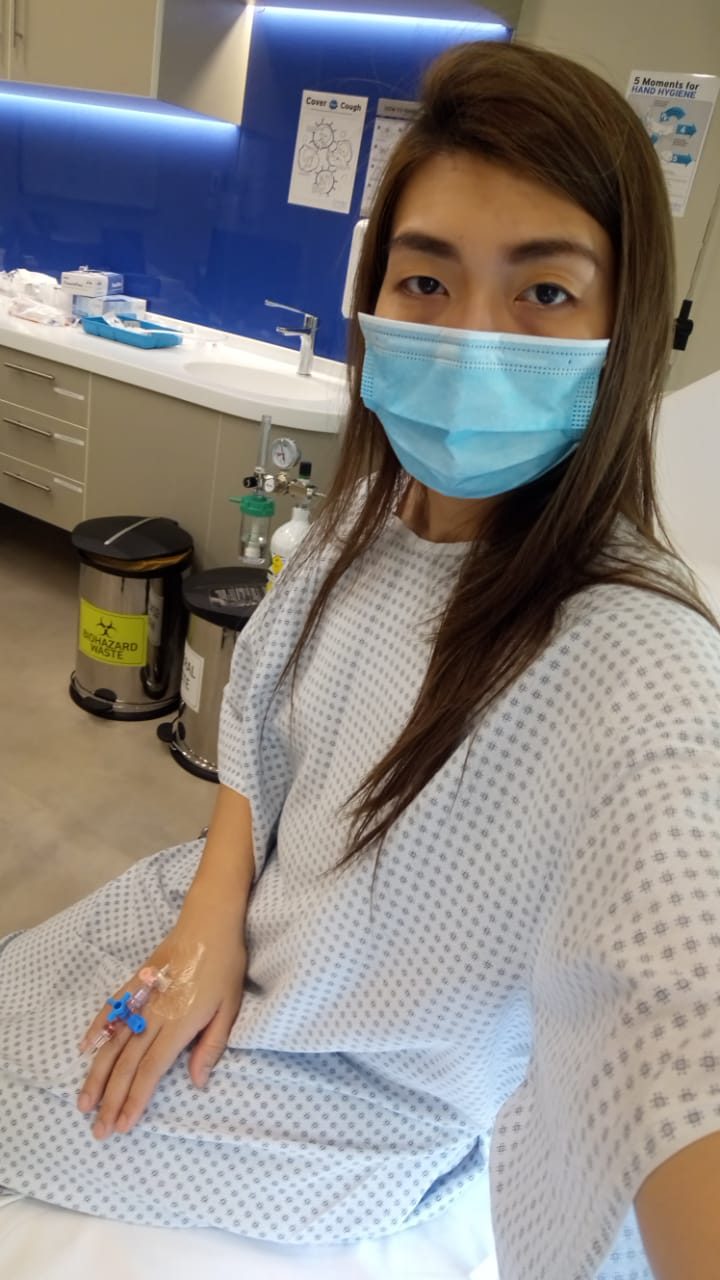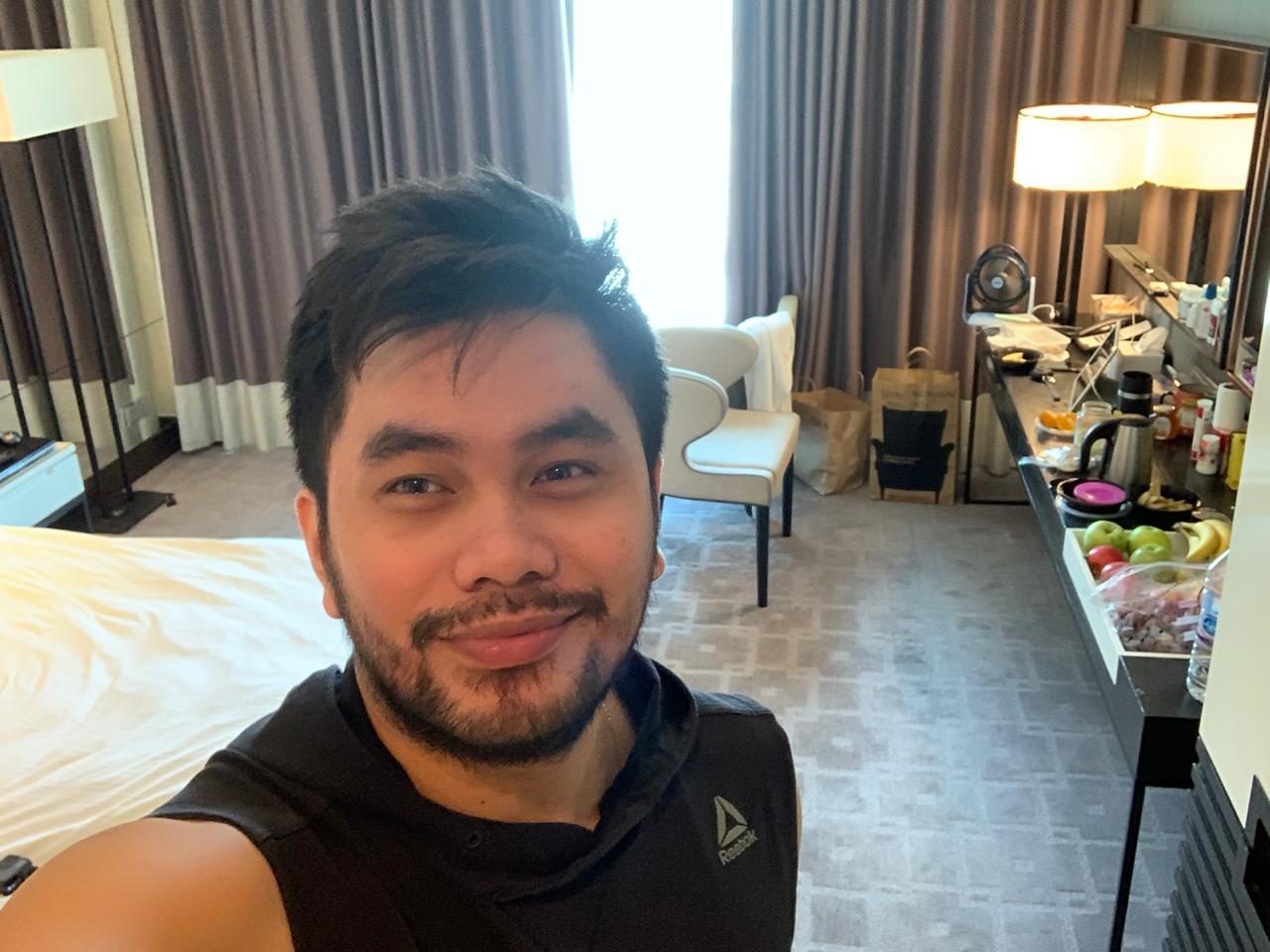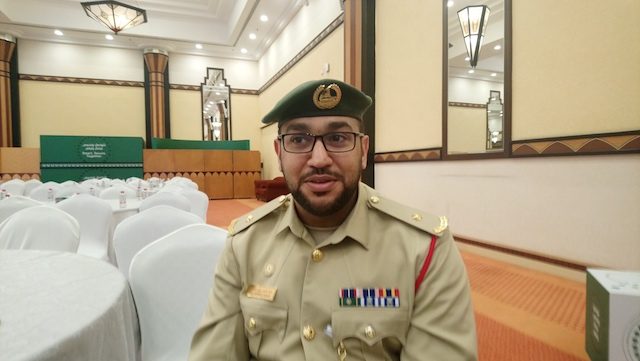SUMMARY
This is AI generated summarization, which may have errors. For context, always refer to the full article.

DUBAI, United Arab Emirates – On April 24, 2020, Jade Jacqueline Chan-Delos Trinos, a regional sales manager at a company manufacturing diagnostic kits and supplies to labs and hospitals, tested positive for COVID-19.
“I immediately went to a private hospital from work after I was informed that our housemate came out positive and was already admitted,” she recalled. The hospital tests walk-in patients who were in close contact with positive cases without scheduling.
After she got her test result, she immediately called Dubai Health Authority (DHA), following the hospital’s advice.
“I already had an intuition that it’ll be positive due to my symptoms, so it wasn’t a surprise. I also elaborated on the living condition we have and said isolation would be difficult especially [because] we share common areas at home,” Delos Trinos said.
“I’m living in a villa with 3 floors. It’s not crowded. We live in a separate private room. It’s not a partition or bed space. Each floor has only 6 people,” she said in a mix of Filipino and English.
Delos Trinos said she and her husband, Den Bryan, who also tested positive, were picked up from their home near the Muraqqabat area in Deira, north of Dubai on April 30, a week after she made the phone call at DHA’s 800342 hotline.
Essential workers
The couple wasn’t sure where or how they got the coronavirus.
“Both I and my husband travel and report daily to our workplace even during at the lockdown. We were considered essential workers and were permitted to mobilize anytime. So it could be from home or anywhere during our work. We were both potentially at high risk due to exposure but since we [also] have a housemate positive for COVID-19, it’s quite difficult to assume from where we really contracted the virus,” Delos Trinos said.
Her husband works at a Fast Moving Consumer Goods (FMCG) company supplying hypermarts.
“As per my experience, since we are partaking the use of a common washroom, kitchen and even doorknobs with others in a sharing flat, contracting the virus is highly likely,” Delos Trinos said.
“But,” she stressed, “considering the prices of rents in Dubai, the reality of having your own space is not affordable and never easy.”
A studio-type room in Dubai varies in the range of Dh2,700 (P37,000) a month. On the other hand, a partitioned space – a room divided into 3 smaller ones – comes at an average of Dh1,200 (P16,500) including utilities and Wi-Fi.
Bed space is less expensive at Dh750 (P10,300) for the lower bunk and Dh700 (P9,600) for the upper one.
It is easily this reason why most overseas Filipino workers (OFWs) in Dubai, especially those in the services and restaurant sectors, opt for bed space, or find someone else to share the cost of partitions.
Quarantined in a hotel
Following treatment, Delos Trinos was out of the hospital in 10 days on May 10; her husband was discharged on May 16.
Delos Trinos said DHA offered her to stay in a hotel for a week’s quarantine or isolation if she didn’t feel that home was safe. Not leaving anything to chance, she accepted the offer.
“I know some people, kaso nila severe na talaga ’yung case, kaya more than a month na sa ICU,” she said. (I know some people whose cases are already really severe that’s why they have been in Intensive Care Unit for more than a month already.)
Delos Trinos said life in a DHA-provided hotel isolation room was good.
“The medical services were outstanding,” she said. “I had full sumptuous meals. The hospital provided toiletries, temperature and BP were checked religiously, they did fecalysis, X-ray and blood tests for hematology and chemistry examinations. They gave two medications every 8 hours and I was on IV [intravenous injection] due to high fever, nausea, dehydration and low BP [blood pressure] due to diarrhea,” she said.
“As per protocol, visits weren’t allowed, not even my husband who was just in the next room. The hospital was equipped with HD TV with cable channels and fast internet to ease our loneliness and anxiety,” she added.
‘I needed to isolate myself’
Meantime, living alone in a partitioned room was Bryan Tayag Pagtalunan, 32, who works at one of the shops at Dubai International Airport’s concourse. He took the swab on April 27, following airport routine requirement.
He said he had been having phlegm in his throat the past few days and thought nothing of it because he was on night shift and these things happen when he lacked sleep.
At around 4:30 pm on May 1, Pagtalunan said he received a call from a lady who introduced herself as a DHA representative and informed him that he tested positive for COVID-19.
“At that moment, my world literally stopped. It took some seconds to answer. The lady asked me a lot of questions: where am I at the time, where do I work, when was the last time I reported to work, where do I live, was I living alone or in a shared partition? I calmly answered all her questions,” Pagtalunan said.
“I needed to isolate myself no matter what happened,” he added.
Shared spaces
Pagtalunan said he also requested to be transferred to a facility because he lived in a partition in a 3-bedroom flat in Rigga, also in Deira, where the living area has been subdivided into 3 smaller rooms.
There are 3 of them who share the entire hallway set apart only by a wooden divider. The entire flat is shared by him with 4 families, one family per room.

He immediately informed his flatmates through their Whatsapp group chat that he tested positive. “I felt bad because we’ve been together for some time, even sharing food. So because of that, they need to isolate themselves also,” he said.
“Thankfully, they understood my situation. I didn’t feel discriminated against but actually received a lot of support and comfort. Most of them are nurses so they knew my case. I am an asymptomatic patient,” Pagtalunan said.
Being an asymptomatic COVID-19 positive patient, DHA transferred Pagtalunan to a hotel in the Business Bay area where he underwent isolation treatment.
Like Delos Trinos, Pagtalunan was treated well in the hotel. “The nurses took some vital signs and explained that since I am asymptomatic they will quarantine me there. And they will do some swab testing every now and then. Food is provided 3 times a day. Kudos to Dubai government for taking good care of COVID patients,” he said.
For him to be sent home, Pagtalunan needed to have at least two negative COVID-19 test results. He had tested negative on May 4 but tested positive on May 8 and then again on May 12. It was a negative result on May 16 but the succeeding May 19 test gave positive results. He was finally cleared and sent home on May 25 after testing negative on May 23.
Local authorities say about 20% of the deaths in the UAE have been mostly Filipinos staying in Dubai. There is an estimated half a million Filipinos here.

A ranking Dubai police official attributed the percentage of deaths to 4 factors: shared tight living spaces, going to the hospital only when it’s already “very late,” age, and the fear of losing a job.
“They only come (to seek medical help) after they have reached the last stage. That’s very dangerous,” Lt. Khalid Mohammed B. Banasser, Dubai Police spokesperson, told Rappler.
“There are also those in the age range of 45 or above 50 (who are) advised not to go outside. But they refuse not to go out because they are afraid that their salary will be cut,” he added.
What to do
What should be done if someone living in shared accommodations starts showing symptoms or tests positive for COVID-19?
Dr Alvin Torres, a physician with the UAE government’s primary health center, said it is vital that a “physical barrier” be set up.
He told a recent, live-streamed talk show hosted by Kalayaan 2020, an aggrupation of Filipino organizations in Dubai and the neighboring Northern Emirates, that shower curtains should be used where there are bed bunks.
He said in Filipino that this is preferred for infection control because they are “easier to clean and disinfect compared to cloth curtains.”
When there is more than one person showing symptoms, Torres recommended “cohorting.” This entails all those showing symptoms to stay in one room and be tested.
The overall COVID-19 mortality rate in the UAE, according to Torres, is less than 1% or 253 deaths from 31,086 cases as of May 26, with recoveries at close to 16,000.
Of the 253 deaths in the UAE, 48 were Filipinos in Dubai, according to Consul General Paul Raymund Cortes. – Rappler.com
TOP PHOTO: FIGHTING COVID-19. Two overseas Filipino workers in Dubai fight their own battles against the deadly virus.
Add a comment
How does this make you feel?
There are no comments yet. Add your comment to start the conversation.